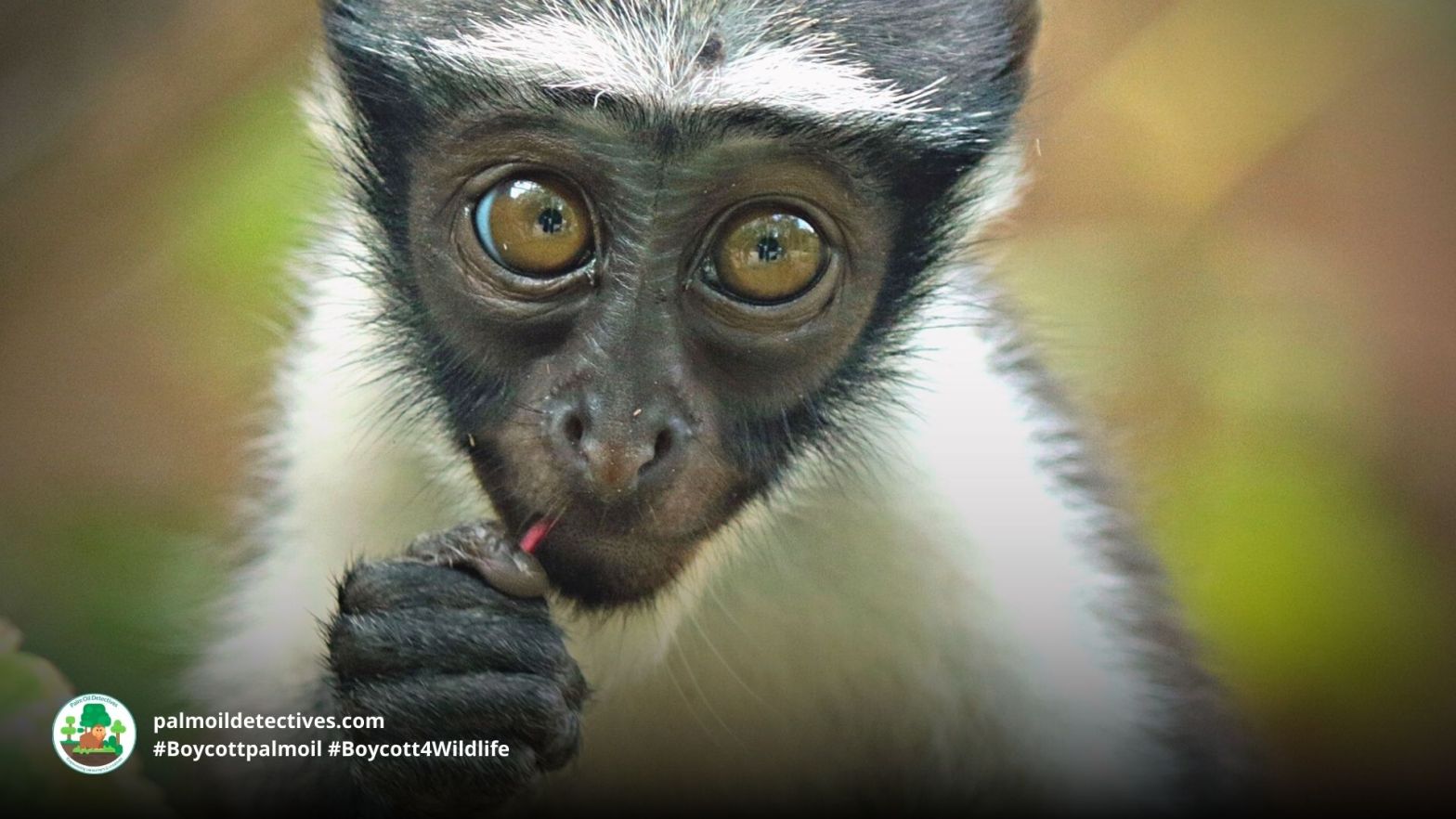Roloway Monkey Cercopithecus roloway
Critically endangered
Ghana, Ivory Coast
This highly arboreal species was once confined to moist evergreen and moist semi-deciduous primary and old secondary lowland forests and swamp forests.
The Roloway Monkey is one of the most threatened monkeys of the Upper Guinean Forest block (Oates 1996). They have previously been recorded from a number of protected areas across the region. However, tragically recent surveys failed to confirm the presence of Roloway monkeys in several forest reserves in Côte d’Ivoire and Ghana. There is no known conservation project in place to protect them.
The Roloway Monkeys of #IvoryCoast, #Ghana are 1 of the most threatened monkeys in the 🌍 Critically endangered, their main threat is #palmoil and #mining #deforestation. Help them when you #Boycottpalmoil #Boycott4Wildlife
Tweet
A mean group size of 6.85 (range: 2.89–11.85) and a population density of 36 individuals per km² were recorded in parts of the Tanoé swamp forest in Côte d’Ivoire during a survey in 2009 (S. Gonedelé Bi, unpublished data).
This species is threatened by hunting and habitat degradation and loss. The relatively large body size of this species, its conspicuousness and the value of its meat and skin make it a preferred target of hunters.
Large-scale deforestation in the region, through logging, conversion to agricultural land and charcoal production, continues to reduce the habitat available to this species, especially in Côte d’Ivoire (McGraw 1998, McGraw and Oates 2007, Bitty et al. 2015).
IUCN Red List
Between 2001 and 2017, Côte d’Ivoire is estimated to have lost 17% of its tree cover (Global Forest Watch 2019) and this loss has been exacerbated by a large increase in the human population in the southern forest zone.





Support the conservation of this species
This animal has no protections in place. Read about other forgotten species here. Create art to support this forgotten animal or raise awareness about them by sharing this post and using the #Boycottpalmoil #Boycott4Wildlife hashtags on social media. Also you can boycott palm oil in the supermarket.
Further Information

Koné, I., Oates, J.F., Dempsey, A., Gonedelé Bi, S., McGraw, S. & Wiafe, E. 2019. Cercopithecus roloway. The IUCN Red List of Threatened Species 2019: e.T4232A92384429. https://dx.doi.org/10.2305/IUCN.UK.2019-1.RLTS.T4232A92384429.en. Downloaded on 15 February 2021.
Emmanuel Danquah1 and Elvis Hackman Tetteh Logging Activity Adversely Impacts Primate Diversity and Density in the Kwabre Rainforest of Ghana. International Journal of Ecology. https://doi.org/10.1155/2016/7497326

How can I help the #Boycott4Wildlife?
Contribute in five ways
1. Join the #Boycott4Wildlife on social media and subscribe to stay in the loop: Share posts from this website to your own network on Twitter, Mastadon, Instagram, Facebook and Youtube using the hashtags #Boycottpalmoil #Boycott4Wildlife.
2. Contribute stories: Academics, conservationists, scientists, indigenous rights advocates and animal rights advocates working to expose the corruption of the palm oil industry or to save animals can contribute stories to the website.
3. Supermarket sleuthing: Next time you’re in the supermarket, take photos of products containing palm oil. Share these to social media along with the hashtags to call out the greenwashing and ecocide of the brands who use palm oil. You can also take photos of palm oil free products and congratulate brands when they go palm oil free.
4. Take to the streets: Get in touch with Palm Oil Detectives to find out more.
5. Donate: Make a one-off or monthly donation to Palm Oil Detectives as a way of saying thank you and to help pay for ongoing running costs of the website and social media campaigns. Donate here








